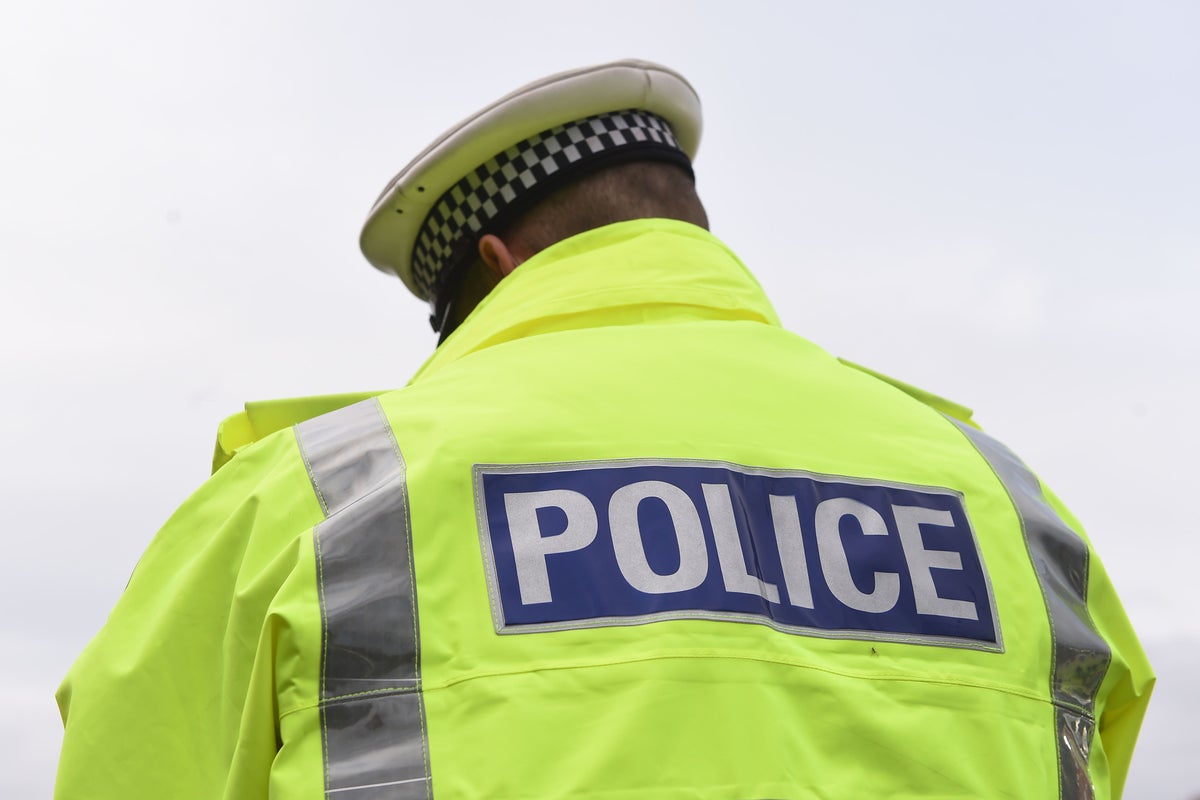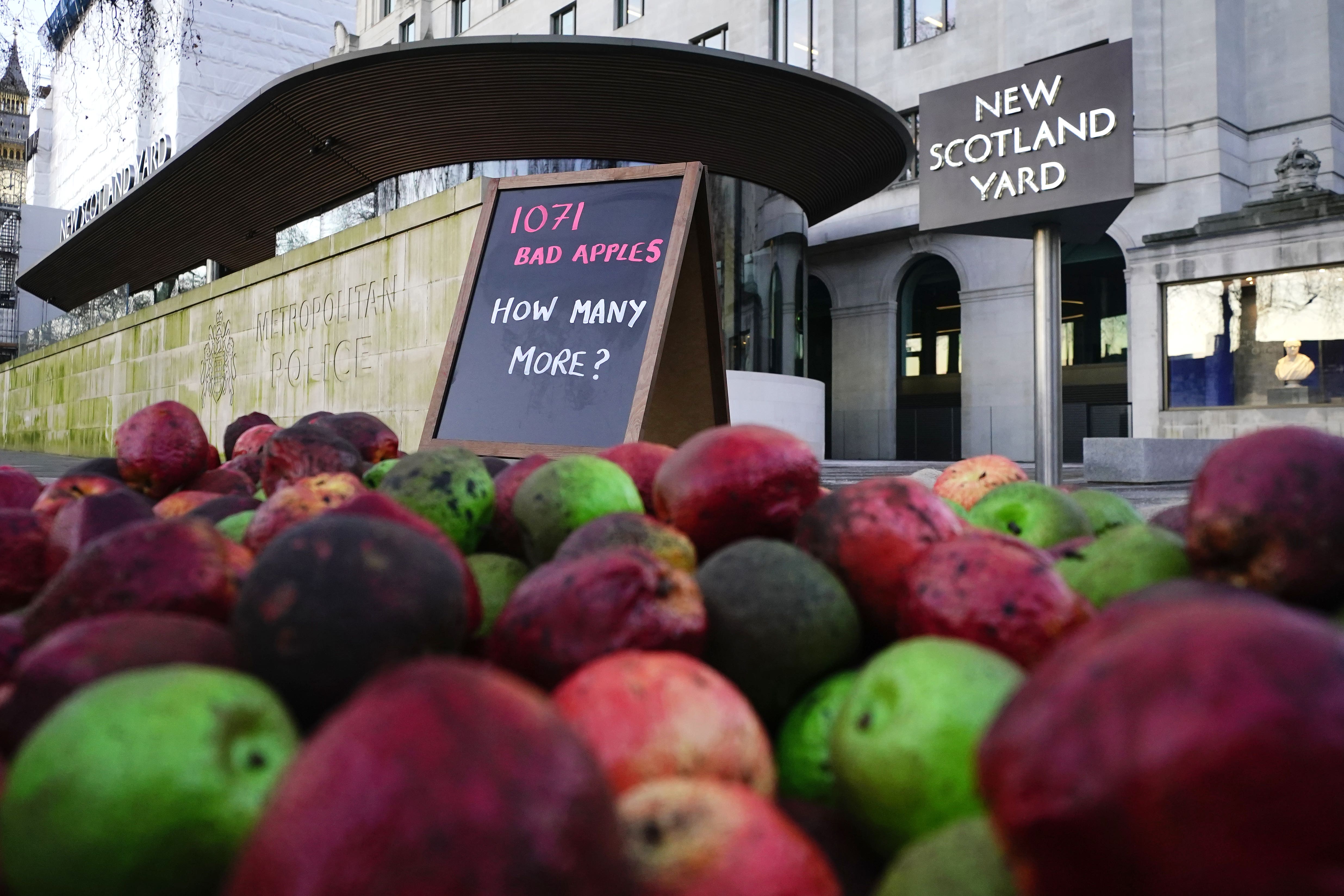
New laws compelling failing police forces to improve must be brought in to “keep the public safe” after a series of scandals that have beset UK policing, a watchdog has said.
HM Inspectorate of Constabulary wants Suella Braverman to move quickly to introduce new legislation, warning that reforms demanded by the watchdog seven years ago are only happening now in the wake of “horrific acts” by Met predators Wayne Couzens and David Carrick.
A scathing report said urgent legal changes are needed and that the watchdog’s existing powers have been proved to be insufficient by “too many occasions where forces failed to act”.
It warned: “There are only so many times we can say the same thing in different words.”
Andy Cooke, HM chief inspector of constabulary, said concerns about officers abusing their position of authority to prey on women sexually were raised formally by the inspectorate “way back” in 2016, but only two forces had followed its recommendations.
“The time for talking has passed and it is now time for action,” he told a press conference.
The report also found:
- British policing is at a major turning point as trust “hangs by a thread”
- Forces must focus on issues that matter most to the public and “get the basics right”
- Police are hampered by a “dysfunctional and defective” wider justice system
- Demand is being driven up by mental health calls and the “failure of other public sector organisations”
In his first annual report as head of the police watchdog, Mr Cooke said warnings were issued repeatedly that police forces were not doing enough to stop officers taking advantage of women – for example, by targeting victims of domestic violence for sex while investigating their abuse.
Mr Cooke said that only following a wave of inquiries and reviews, sparked by the murder of Sarah Everard and the horrific crimes carried out by serial rapist Carrick, were “forces getting to where they should be”.
“This is seven years later, and in those seven years, we’ve had some truly horrendous acts by police officers,” Mr Cooke said.
“I’m not sitting here saying that wouldn’t have happened if they’d acted on our recommendations earlier, but surely, if I could direct action on those issues as opposed to ‘recommending’, a lot more would have been done a lot quicker.”
The inspectorate is calling for new laws to be introduced that would allow it to issue “directions” to police forces on significant risks to public safety, and for parliament to then decide on sanctions in the event of a breach.
It also wants the power to issue orders to the National Police Chiefs’ Council (NPCC) and the College of Policing “in limited circumstances”, and to compel other authorities to follow its recommendations.
The watchdog is calling for involvement in the appointment of chief constables, saying it was a “mistake” by the government to remove it from the process when politically elected police and crime commissioners were created in 2012.
The inspectorate is formally calling for the home secretary to review its powers and decide whether to create any new laws by the end of this year.
Mr Cooke said: “The government must act now to stop this leaking of public confidence and to reset the compass. Arguably, people are safer now than we’ve ever been, and most crime is down, but people do not feel safer.”

It comes as six police forces, including the scandal-plagued Metropolitan Police, remain in the watchdog’s equivalent of special measures.
The watchdog said that, aside from the damage done by high-profile crimes committed by police officers and scandals around misogyny and racism, trust was falling because people do not see police addressing the problems they experience.
“They need to get back to doing jobs that the public would expect – properly investigating crime, reinvigorating neighbourhood policing, answering 999 calls quickly,” added Mr Cooke.
“A lot of demand is coming from mental health issues and picking up issues that other public authorities should be dealing with. Thirty per cent of the time they are doing things that the public wouldn’t really expect them to be doing.”
The report also contained warnings about police resources, saying that the government’s current funding model was “not fit for purpose” and Boris Johnson’s drive to recruit 20,000 extra police officers had not replaced the experience lost during the austerity years.
It found that, since 2014, charge rates had plummeted by two-thirds and other sanctions had halved, meaning “fewer criminals are being caught”.
Yvette Cooper, Labour’s shadow home secretary, said the report “revealed the scale of the damage” wrought by Conservative governments.
“These include systemic failings in policing and a totally dysfunctional criminal justice system, with more criminals getting away with crimes, victims let down, vital neighbourhood policing devastated, record numbers of forces in special measures, and confidence in policing falling,” she added. “Labour agrees with the inspectorate that urgent reforms are needed.”
The call for new laws was backed by Paul Fotheringham, president of the Police Superintendents’ Association, who said: “There are clear issues with the lack of consistency demonstrated across policing when it comes to the acceptance and implementation of national guidance. Stronger national legislation, supported by greater accountability, is essential in achieving this.”
The Home Office said it would carefully consider the report’s recommendations and respond formally in due course.
Ms Braverman said she shared the concern “that policing needs strong leaders, a greater focus on the basics and issues that matter most to the public – and to be more visible in communities”.
Gavin Stephens, chair of the NPCC, said: “We are also very determined to ensure the highest standards of professional behaviour, acting in the public interest to maintain the vital support of communities so we can police by consent. I am committed to ensuring that the NPCC works alongside our partners to secure the right level of investment in policing and bring about meaningful change.”







